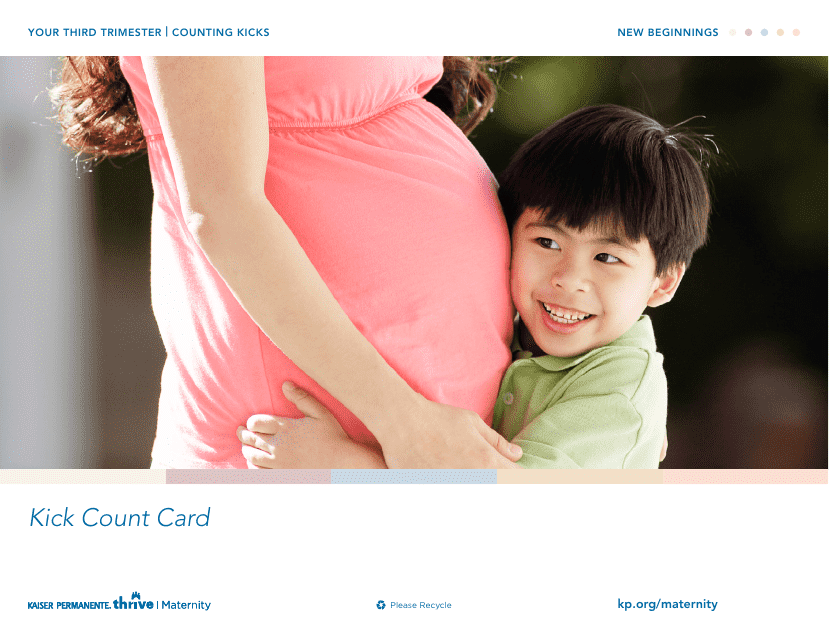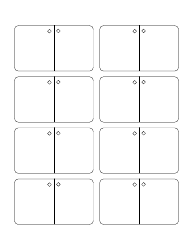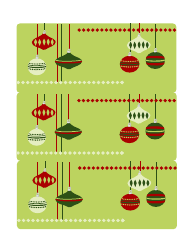Kick Count Card Template
A Kick Count Card Template is used by pregnant women to track their baby's movements or "kicks" in the womb. It acts as an important tool for monitoring the baby's health. In general, expecting mothers are advised to spend some quiet time each day focusing on their baby's movements, noting down the times and frequencies of each kick. It helps them to identify any significant changes or reductions in their baby's movements, which could indicate potential problems that require immediate medical attention. Regular monitoring of fetal movement helps to reduce the risk of stillbirth.
A Kick Count Card Template is generally filed by pregnant women, specifically in late pregnancy stage. It's used to monitor and track an unborn baby's movements, including kicks, rolls, punches, and jabs in the womb. Medical professionals, such as doctors, nurses, or midwives, usually instruct expectant mothers on how to use the card effectively. Thus, the person filing a Kick Count Card Template would primarily be the pregnant woman herself, under guidance from her healthcare provider.
FAQ
Q: What is a Kick Count Card template?
A: A Kick Count Card template is a journal or a record sheet used by expectant mothers to track their baby's movements known as 'kicks' in the womb. It serves as a simple and easy method to monitor the baby's health. It typically involves marking or recording the time of day each time movement is felt, until a total of 10 movements have been felt.
Q: How is a Kick Count Card used?
A: A Kick Count Card is used by pregnant women usually in their third trimester. They record the number of times they feel their baby move. The goal is typically to feel at least 10 movements within 2 hours. If less than 10 movements are felt in 2 hours, or if there's a significant decrease in usual movement, it's essential to contact the healthcare provider.
Q: Is tracking baby kicks important?
A: Yes, tracking baby kicks is important as it is a simple and helpful way for expecting mothers to monitor their baby's well-being. A decrease in movements or change in kick pattern could potentially indicate an issue which requires medical attention.
Q: When should you start using the Kick Count Card?
A: Generally, expectant mothers are advised to start using the Kick Count Card around the 28th week of pregnancy, unless otherwise advised by their healthcare provider. For high-risk pregnancies, tracking might start earlier.
Q: Can the Kick Count Card method guarantee the baby's health?
A: While the Kick Count Card is a useful tool in monitoring a baby's movements, it should not replace regular prenatal visits and checkups. It does not guarantee the baby's health, and any concerns or changes in movement should always be discussed with a healthcare provider.









